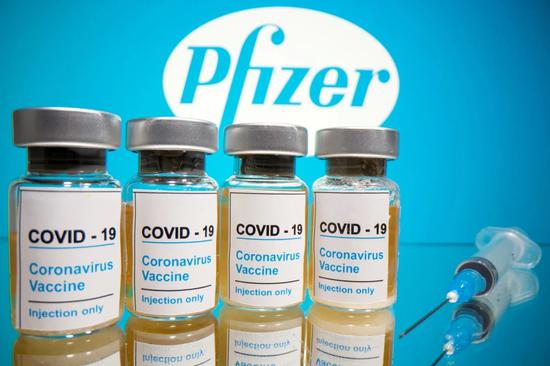The coronavirus vaccine jointly developed by Pfizer Pharmaceuticals and German Biotech Company began to be put into use in Europe last December.
However, Pfizer recently said that it would temporarily cut its coronavirus vaccine delivery, which affected the vaccination plans of many countries in Europe and the Americas and caused dissatisfaction in many countries. At the same time, low-income countries and most middle-income countries still still do not start vaccination, and the equitable distribution of the global coronavirus vaccine is facing challenges.
Pfizer said a few days ago that in order to achieve the goal of increasing vaccine production, the company will change the production process and “shortly affect” the delivery progress of vaccines from the end of January to the beginning of February.
German biotechnology company said that the output of a factory in the Belgian town of Pierce will decline in the next few weeks because the company has changed some production processes to increase production capacity. A Pfizer spokesman said that the suspension of delivery will affect all European countries.
Health ministers of EU member states held a videoconference on the 13th of this month to discuss vaccine delivery.
Sweden, Denmark, Finland, Lithuania, Latvia and Estonia wrote to the European Commission on the 15th, asking the European Commission to put pressure on Pfizer and Biotech companies to ensure that vaccine delivery is timely, stable and transparent.
“This situation not only affects the established vaccination schedule, but also undermines the credibility of the vaccination program,” the health ministers of the above-mentioned six countries said in the letter.
Pfizer’s approach has also been strongly criticized by Swedish Minister of Health and Social Affairs, Lena Hallengren and other European health ministers. The Swedish news agency quoted Harlemgren as saying, “This is unacceptable”.
“We are racing against COVID-19 and the more contagious mutant virus … we therefore attach great importance to the reduction [the situation] of vaccine delivery,” said Magnus Hojnik, Danish Health Minister.
Other European and American countries have also been affected by Pfizer’s reduction in delivery. Agnès Panier-Lunechet, the minister representative for industry of the French Ministry of Economy, told French TV4 news channels on the 18th that France estimates that the Pfizer vaccine received this week will be reduced by 140,000 doses.
Domenico Alcuri, commissioner of the Italian COVID-19 Emergency Committee, said that Pfizer will cut the dose of vaccine delivered to Italy by 29% from the 18th, and Pfizer did not indicate how long the supply reduction will last. In addition, Poland, Finland, Canada and Mexico also indicated that they received less than the original amount of Pfizer vaccine, which would have an impact on their vaccination services.
During his visit to Portugal on the 15th, European Commission President von der Leyen told the media that the European Union was very concerned about Pfizer’s announcement of delay in the supply of vaccines, especially that many people have already given the first dose, and they need to inject a second dose in four weeks.
Von der Leyen said that this delay in supply illustrates the importance of expanding production, and the EU will continue to promote cooperation with pharmaceutical companies in this regard. However, von der Leyen did not disclose how many doses of vaccine Pfizer will be able to provide when it resumes normal supply in February.
Pfizer is not the only pharmaceutical company to delay the delivery of vaccines.
Nazim Zahavi, the official in charge of the coronavirus vaccination program, said in an interview with the media on the 18th that the British government had hoped to receive 2 million doses of AstraZeneca-produced vaccines a week by the end of January, but the pharmaceutical company would not reach this delivery until mid-February.
Facing the shortage of vaccine supply, some countries are considering adjusting vaccination strategies.
According to U.S. media reports, some U.S. officials suggested that the U.S. Moderna company vaccine should be provided to some people with a dose reduction to “double the number of people who have been vaccinated in the existing vaccine stock”; the United Kingdom changed the recommended vaccination interval of Pfizer vaccine from 21 days to “at least 21 days” last December, the longest “No more than 12 weeks” to increase the number of people who are vaccinated in a short period of time. However, similar views have been questioned a lot.
Pfizer once said: “[We] do not have protective data on vaccines after the first dose after more than 21 days of vaccination [the second dose].”
Compared with developed countries, it is more difficult for low-income countries and most middle-income countries to obtain vaccines.
According to the data released by the World Health Organization on the 8th, 42 countries are currently promoting coronavirus vaccination, of which 36 are high-income countries, the remaining 6 are middle-income countries, and low-income countries and most middle-income countries have still not started vaccination.
WHO Director General Tedros warned that the world is on the verge of “catastrophic moral failure” because poor countries cannot get vaccines as quickly as rich countries.



